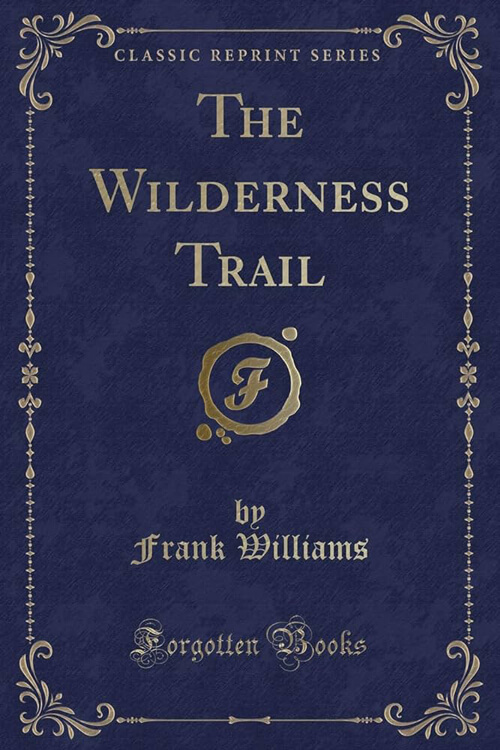
The Wilderness Trail
“And you accuse me of that?”
Donald McTavish glared down into his superior’s heavy, ugly face—a face that concealed behind its mask of dignity emotions as potent and lasting as the northland that bred them.
“I accuse you of nothing.” Fitzpatrick pawed his white beard. “I only know that many valuable furs, trapped in your district, have not been turned in to me here at the factory. This is to explain the discrepancy that I have called you down by dogs in the dead of winter. Where are those furs?” He looked up out of the great chair where he was sitting and regarded his inferior with cold insolence. For half an hour now, the interview had been in progress, half an hour of shame and dismay for McTavish and the same amount of satisfaction for the factor.
“I have no idea where they are,” returned the post captain. “So far as I know, the usual number of pelts have been traded for at the fort. If any have disappeared, it is a matter of the white trappers and the Indians, not my affair.”
“Yes,” agreed the other suavely, “but who is in charge of Fort Dickey?”
“I am.”
“Then, how can you say it is not your affair when the Company is losing twenty thousand pounds a year from your district?”
The young man ground his teeth helplessly, torn between the desire to throttle ugly old Fitzpatrick where he sat or to turn on his heel and walk out without another word. He did neither. Either would have been disastrous, as he well knew. He had not come up three years with the spring brigade from the Dickey and Lake Bolsover without knowing the autocratic, almost royal rule of old Angus. Fitzpatrick has been a factor at Fort Severn for these two decades.
So, now, he choked back his wrath and padded up and down, pondering what to do. The room was square, low, and heavily raftered. Donald had to duck his head for one particular beam at each passage back and forth. Beneath his feet were great bearskins in profusion; a moose’s head decorated one end of the place. The furniture was heavy and homemade.
At last, he turned upon the factor.
“Look here!” he said. “What have you got against me? You know as well as I do that there isn’t another man in your district you would call in from a winter post to accuse in this way. What have I done? How have I failed in my duty? Have I taken advantage of my position as the chief commissioner’s son?”
Fitzpatrick pawed his beard again and shot the young captain a sharp, curious glance. That mention of his father’s position was slightly untoward. In turn, he pondered a minute.
“Up to this time,” he said, “you have done your work well. You know the business pretty thoroughly, and your Indians seem to be contented. I have nothing against you—”
“No,” burst out McTavish, “you have nothing against me. That’s just it. Virtues with you are always negative; never have I heard you grant a positive quality in all the time I have known you. And, to be frank, I think you have something against me. But what it is, I cannot find out.” He paused eloquently before the white-haired figure that seemed as immovable as a granite block.
“This is hardly the time for personalities, McTavish,” said the other harshly. “What I want to know is, what steps will you take to restore the furs that have disappeared from your district?”
Read or download Book
Frank Williams
Francis William Sullivan, who wrote with the nom de plume Frank Williams, was an author.
Biography.
He wrote The Wilderness Trail, a novel about the Hudson Bay area that Douglas Duer illustrated. It was made into the film The Wilderness Trail starring Tom Mix. The story was initially published in Photoplay Magazine as Glory Road and was followed by a sequel titled Star of the North.
Norval MacGregor directed the 1919 film version of Sullivan’s 1914 novel Child of Banishment.
Sullivan’s story, The Godson of Jeanette Gontreau, was adapted into the 1918 film The Flames of Chance, directed by Raymond Wells and starring Margery Wilson.
Bibliography
- The Wilderness Trail illustrated by G. W. Gage (1913)
- Children of Banishment (1914)
- The Free Range
- Harbor of Doubt (1915) Grosset & Dunlap
- Alloy of Gold (1915)
- Star of the North (1916), illustrated by D. C. Hutchison
- The Godson of Jeanette Gontreau in War Stories






